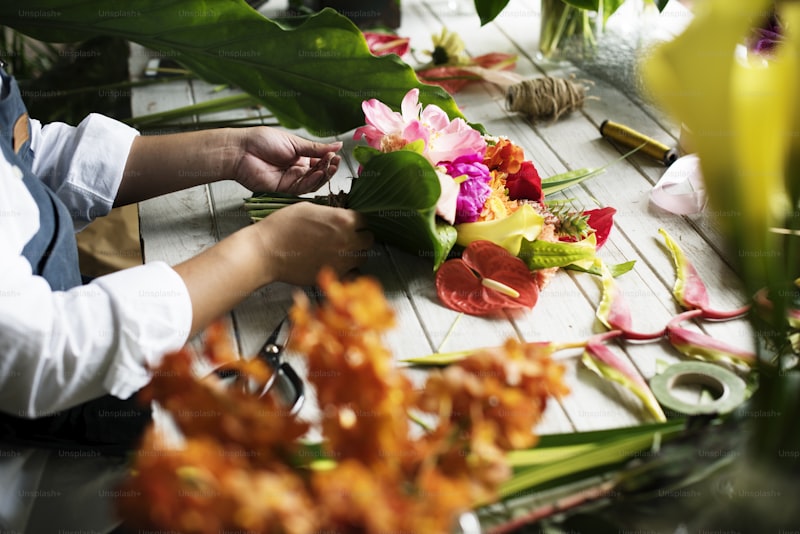Master the Art of Holistic Wedding Planning: Your Comprehensive Guide
Introduction to Holistic Wedding Planning
Planning a wedding can often feel like a monumental task, with countless decisions, vendors, and logistics to manage. However, adopting a holistic approach to wedding planning can transform this experience into a harmonious journey that reflects your personal values, style, and the unique story of your relationship. Holistic wedding planning not only addresses the logistical aspects of the event but also considers the emotional, environmental, and cultural elements that make your wedding truly special. Let’s explore the key components of holistic wedding planning.
What is Holistic Wedding Planning?
Holistic wedding planning is an all-encompassing approach that integrates various dimensions of the wedding planning process. This method encourages couples to align their wedding vision with their values, ensuring that every aspect of the ceremony and reception resonates with their beliefs and dreams. This means considering not just the aesthetic appeal of your wedding, but also its emotional and spiritual facets.
The Benefits of a Holistic Approach
Choosing to plan your wedding holistically brings several advantages:
- Personal Expression: Your wedding becomes a true reflection of your values and personalities.
- Emotional Well-being: A holistic approach reduces stress by promoting mindfulness and intentional decision-making.
- Sustainability: Holistic weddings often emphasize eco-friendly practices, benefiting the environment.
- Inclusive Choices: This approach encourages couples to incorporate diverse cultural elements, making the event more inclusive.
Key Elements of Holistic Wedding Planning
To effectively implement holistic wedding planning, there are several core elements to consider:
| Element | Description |
| Mindful Budgeting | Allocate funds in a way that reflects your values, prioritizing meaningful spending over extravagant costs. |
| Personalized Themes | Choose themes that resonate with your love story, incorporating colors, symbols, and motifs that are significant to you both. |
| Eco-Friendly Practices | Opt for sustainable options such as locally sourced flowers, recycled materials for decor, and eco-conscious catering. |
| Engagement with Values | Integrate cultural or spiritual rituals that are important to you and your families. |
| Vendor Collaboration | Work with vendors who share your holistic values and approach, ensuring a seamless alignment throughout your wedding. |
Steps to Create Your Holistic Wedding
1. Define Your Core Values
Identify the values that matter most to you as a couple. This could include sustainability, family heritage, community, or spirituality. Write these values down and refer to them frequently as you plan your wedding.
2. Develop a Mindful Budget
While planning your budget, focus on expenditures that uphold your values. Rather than following conventional spending patterns, consider allocating funds to vendors and elements that resonate with you. For example, if sustainability is a core value, invest in an eco-friendly venue and caterer.
3. Select a Meaningful Venue
The venue sets the tone for your wedding day. Look for locations that align with your holistic values, such as outdoor spaces, community centers, or venues that prioritize sustainability. Consider venues that offer natural beauty and simplicity, which will complement your holistic theme.
4. Choose Symbolic Decor
Select decor elements that carry personal significance. This might include using family heirlooms, handmade decorations, or locally sourced materials. Natural elements like flowers, stones, and wood can enhance the holistic ambiance of your wedding.
5. Plan a Mindful Ceremony
Your wedding ceremony is the heart of your celebration. Incorporate rituals that symbolize your journey together, perhaps blending traditions from both families. This could include unity ceremonies such as candle lighting or sand ceremonies, which represent the joining of your lives.
6. Engage Intentional Vendors
When selecting vendors, look for those who embrace a holistic philosophy. This can include caterers who prioritize local, organic ingredients, photographers who focus on capturing authentic moments rather than staged shots, or florists who utilize seasonal blooms. Your vendors should reflect your vision and values.
Common Questions About Holistic Wedding Planning
What is a holistic wedding planner?
A holistic wedding planner is a professional who specializes in creating weddings that align with the couple's values and vision. They take into account not only the logistics but also the emotional and ethical aspects of the celebration, ensuring a comprehensive approach to the planning process.
How can I make my wedding eco-friendly?
To create an eco-friendly wedding, consider using sustainable materials for decor, opting for a plant-based menu, reducing waste through digital invitations, and sourcing flowers from local growers. Additionally, think about carbon offsetting for travel and transportation.
What are some unique themes for holistic weddings?
Some unique themes for holistic weddings may include nature-inspired designs, cultural fusion celebrations, minimalism, vintage elegance, or even a wellness retreat-style wedding focused on mindfulness and tranquility.
Conclusion: Embracing the Holistic Approach
Holistic wedding planning not only enhances the overall experience but also allows couples to celebrate their love in a way that feels authentic and meaningful. By focusing on personal values, sustainability, and inclusivity, couples can create a wedding day that resonates deeply with who they are. When embarking on your holistic wedding planning journey, remember to stay true to yourselves, collaborate with mindful vendors, and keep the experience joy-filled and intentional. Embrace every moment as you step toward one of life's most beautiful milestones, making it a memorable celebration that you and your loved ones will cherish forever.
